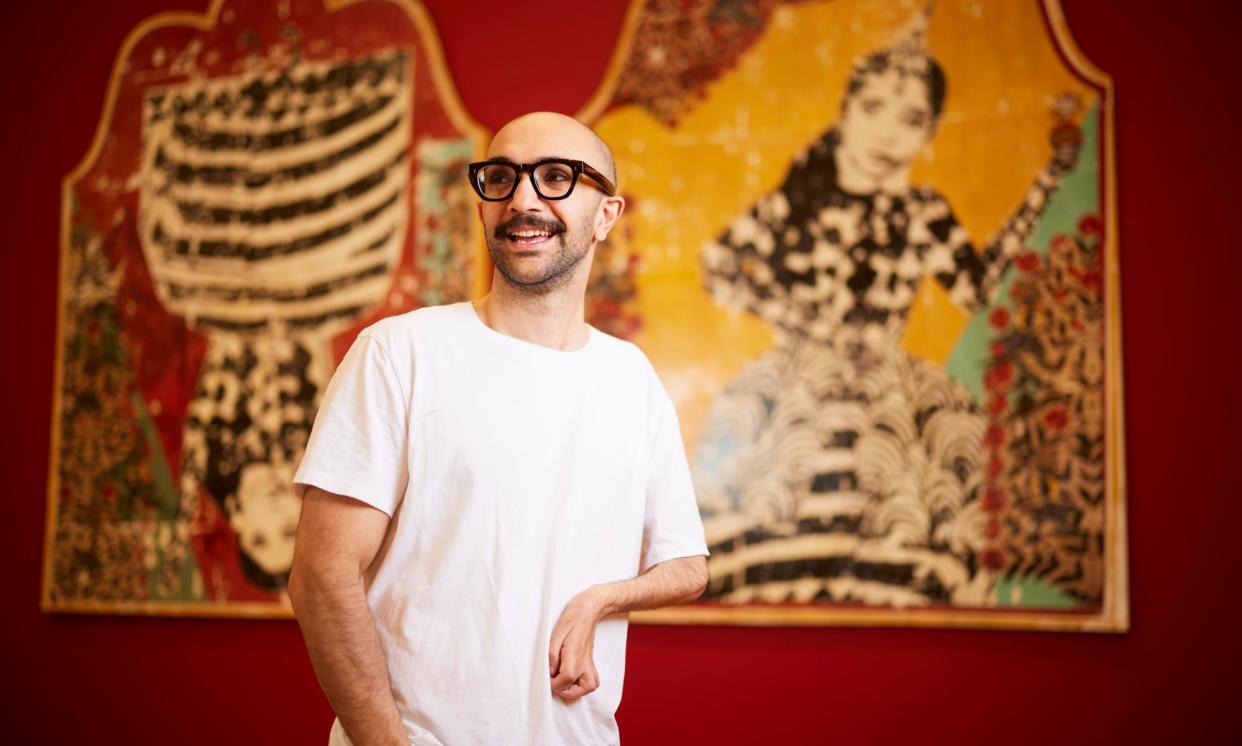Iranian artist opens Leeds show exploring disability and migration

A decade ago, the artist Mohammad Barrangi was representing Iran as a Paralympic sprinter and was ridiculously speedy. “My best time for the 100 metres was 10.72 seconds, in Tunisia,” he says with understandable pride. “I have friends who don’t believe I’m an artist.”
Barrangi is speaking to the Guardian precisely because he is an artist, about to open a major show in Leeds that shines light on his remarkable story of turning what may seem like adversity into endless possibility.
The show tells a fantastical story of a girl called Lily who sails in a small boat from Anzali, a city on the Caspian Sea in northern Iran, to England.
In his art, Barrangi is also telling a story about himself and his lived experience, exploring themes of disability and migration.
He hopes the show will encourage people to think about the human stories behind the headlines about migration. “With the government’s Rwanda plan and the Channel crossings in the news, it’s a very good time to talk about these things,” he said.
The artist, who studied graphic design in Iran as well as excelling as a sprinter, arrived in Britain in 2017. It wasn’t in a small boat, but he had a challenging two years as he sought asylum. “Honestly it was difficult, it was waiting and waiting, I was in detention,” he said.
Fortunately for him, he was sent to Wakefield in West Yorkshire, which can be a great place for aspirant artists. “I was very lucky. I arrived in the UK with no family, no friends, not talking English.”
He joined a residency programme at Wakefield’s The Art House, which supports artists who are refugees and asylum seekers, before successfully applying to the Royal Drawing School in London, co-founded by the then Prince Charles in 2000 to raise the nation’s drawing skills.
His time at the Art House and the Royal Drawing School was lifechanging. Barrangi proudly shows photographs of Charles looking at his works when they were part of a show at Christie’s. “He was a very nice man, very kind.”
Barrangi is now based in Leeds and has works in collections including the British Museum, the Royal Collection and the San Diego Museum of Art.
His show is inspired by a residency in the University of Leeds’ special collections, and draws on sources that include Iranian calligraphy, Middle Eastern textiles and European scientific illustrations.
It has a lighthouse motif at its centre, which is a nod to John Smeaton whose tercentenary is being marked this year.
Leeds-born Smeaton is regarded as the father of civil engineering, even coming up with that phrase. He was a pioneering engineer who built the third Eddystone lighthouse off the coast of Cornwall, a blueprint for all that followed.
Barrangi was born without the use of his left arm, which means he often uses his left foot instead. “My left foot is my left hand,” he said. “It is the way I’ve always done it, it’s second nature.”
His work is about his life and the experiences he has faced, including disability and migration, neither of which he sees as negatives.
“I’m very lucky because I was born disabled,” he said. “A disabled life is challenging. Moving to another country is a challenge, learning a new language, a new life is a challenge.”
• Mohammad Barrangi: One Night, One Dream, Life in the Lighthouse is at the Stanley & Audrey Burton Gallery, University of Leeds, 1 May-20 July.


